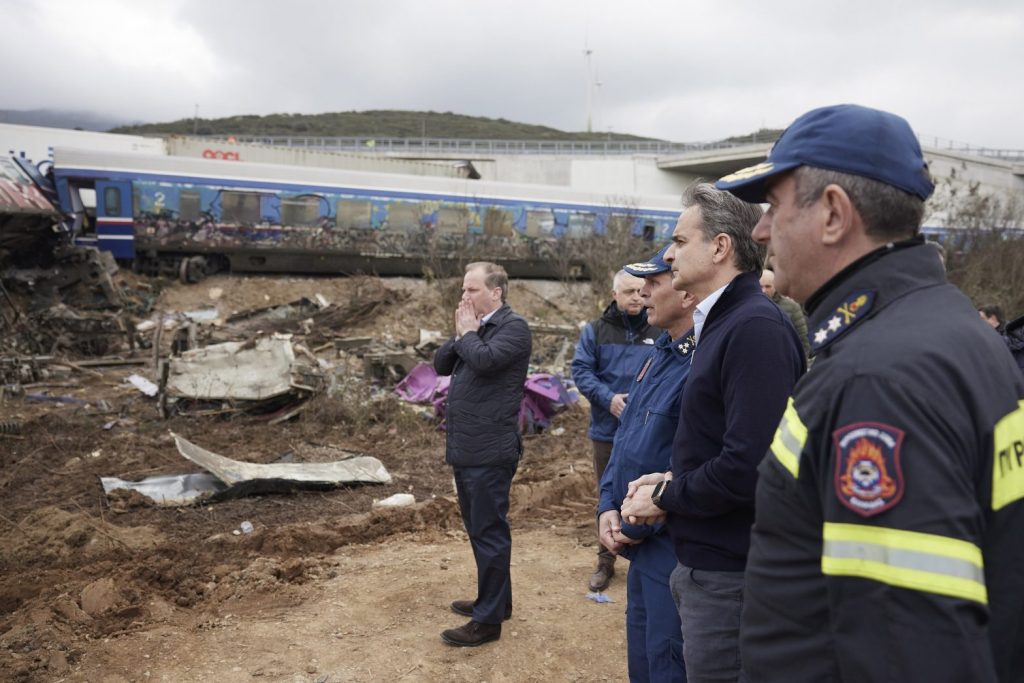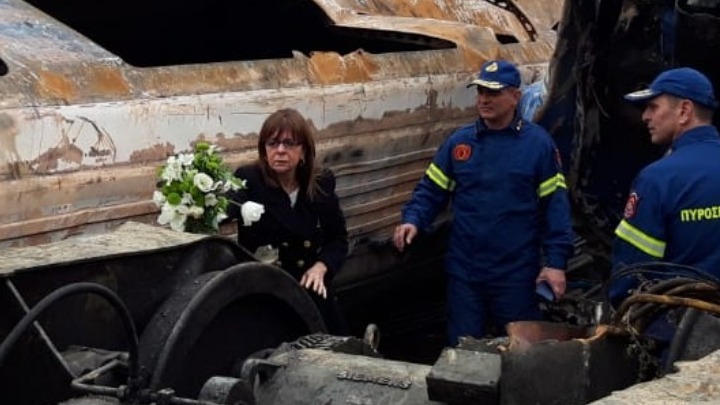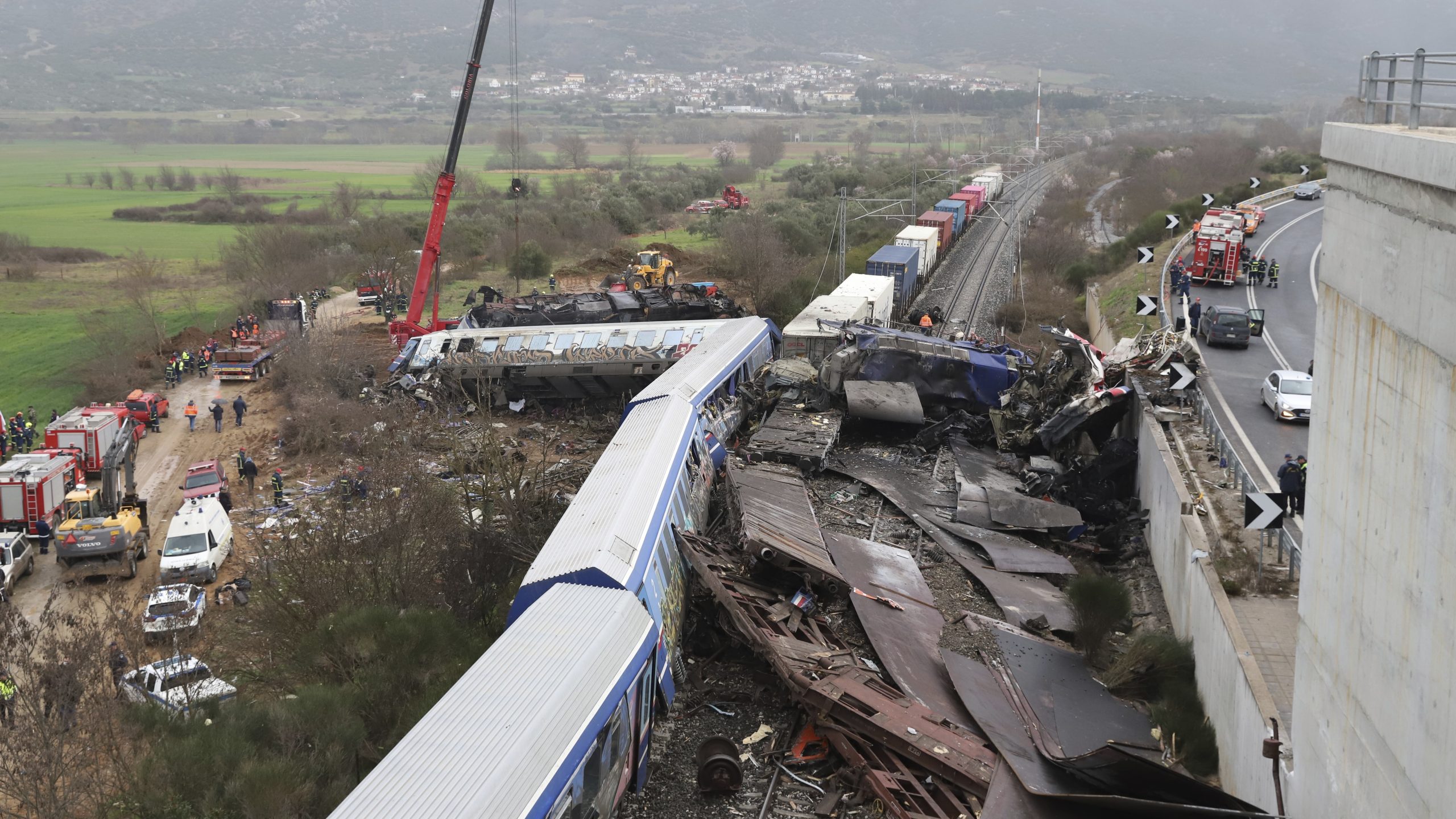Rescuers continued to search for the missing on Wednesday in the wreckage of two trains that slammed into each other in central Greece, killing at least 43 people and leaving many more injured. It is Greece’s deadliest rail crash on record.
By midmorning on Wednesday, 35 bodies had been taken to the general hospital in Larissa, the nearest town, some burned beyond recognition, forcing relatives to give DNA samples.
The two trains — a passenger train carrying 342 people and travelling from Athens to the northern city of Thessaloniki, and a cargo train from Thessaloniki to Larissa — collided head-on outside the city of Larissa in central Greece late on Tuesday.


The passenger train inexplicably switched lanes and diverged to the freight track. The two trains then travelled for several kilometres along the same track before colliding at high speed.
Witnesses who rushed to the scene described the front two carriages of the passenger train, where most of the student victims were seated, as being completely destroyed.
On impact the wagons exploded into flames, sending huge sheets of steel into the air. Survivors later spoke of being ejected from carriage windows; others described how they had to struggle through plumes of acrid smoke to free themselves after the train buckled.

Stationmaster arrested, Transport Minister resigns:
Greek police have arrested a local stationmaster who was in charge of signalling over the deadly train crash, a police official has confirmed.
The arrested stationmaster, described as being in his late 50s with more than four decades of experience on the railways, was charged with involuntary manslaughter and unintentionally causing mass grievous bodily harm.

A police investigation was also launched into the cause of the crash. A public prosecutor, Stamatis Daskopolopoulos, tasked with overseeing the inquiry, said witnesses had begun giving testimony.
Later, Greece’s Transport and Infrastructure Minister Konstantinos Karamanlis announced his resignation after visiting the site of the crash.

“When something so tragic happens, it is impossible to continue and pretend like it didn’t happen,” the politician told reporters.
Stepping down was not only “a mark of respect toward the memory of the people who died so unfairly,” but, he added, an assumption of responsibility “for the Greek state’s and Greek political system’s mistakes over the course of history.”
Greece goes from Carnival to mourning:
Greece’s Prime Minister, Kyriakos Mitsotakis, rushed to the scene at Tempi and called a three-day period of official mourning, ordering flags to fly at half mast.
Mitsotakis called the collision of the passenger train and a freight train “a horrific rail accident without precedent in our country,” and pledged a full, independent investigation.
He said it appears the crash was “mainly due to a tragic human error.”
Greece’s President, Katerina Sakellaropoulou, also cut short her official visit to Moldova on Wednesday and returned to Greece, rushing to the site of the train accident in Tempi.

“We find ourselves in front of an unimaginable tragedy,” Sakellaropoulou said in a statement. “We are mainly mourning young people.”
Shaken by the sight of the crash, Sakellaropoulou left a few flowers at the wreckage in the victims’ memory. Immediately afterwards, she visited the two Larissa hospitals where the crash victims, many of the injured and their relatives were taken.

